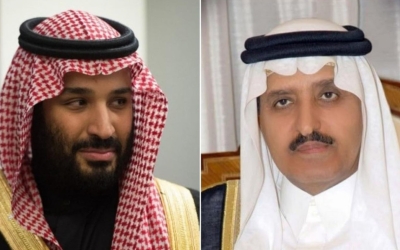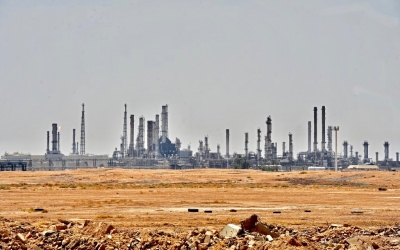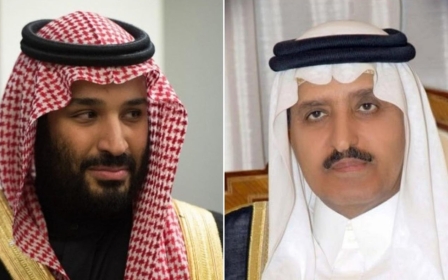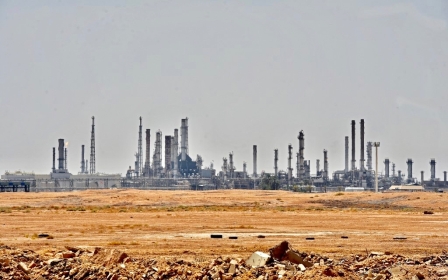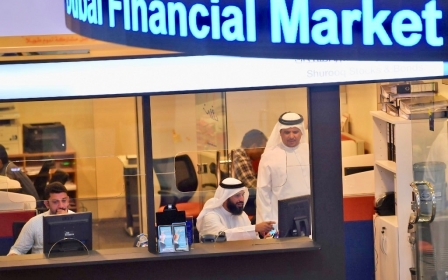Gulf shares plunge on Opec failure to cut output to combat virus impact
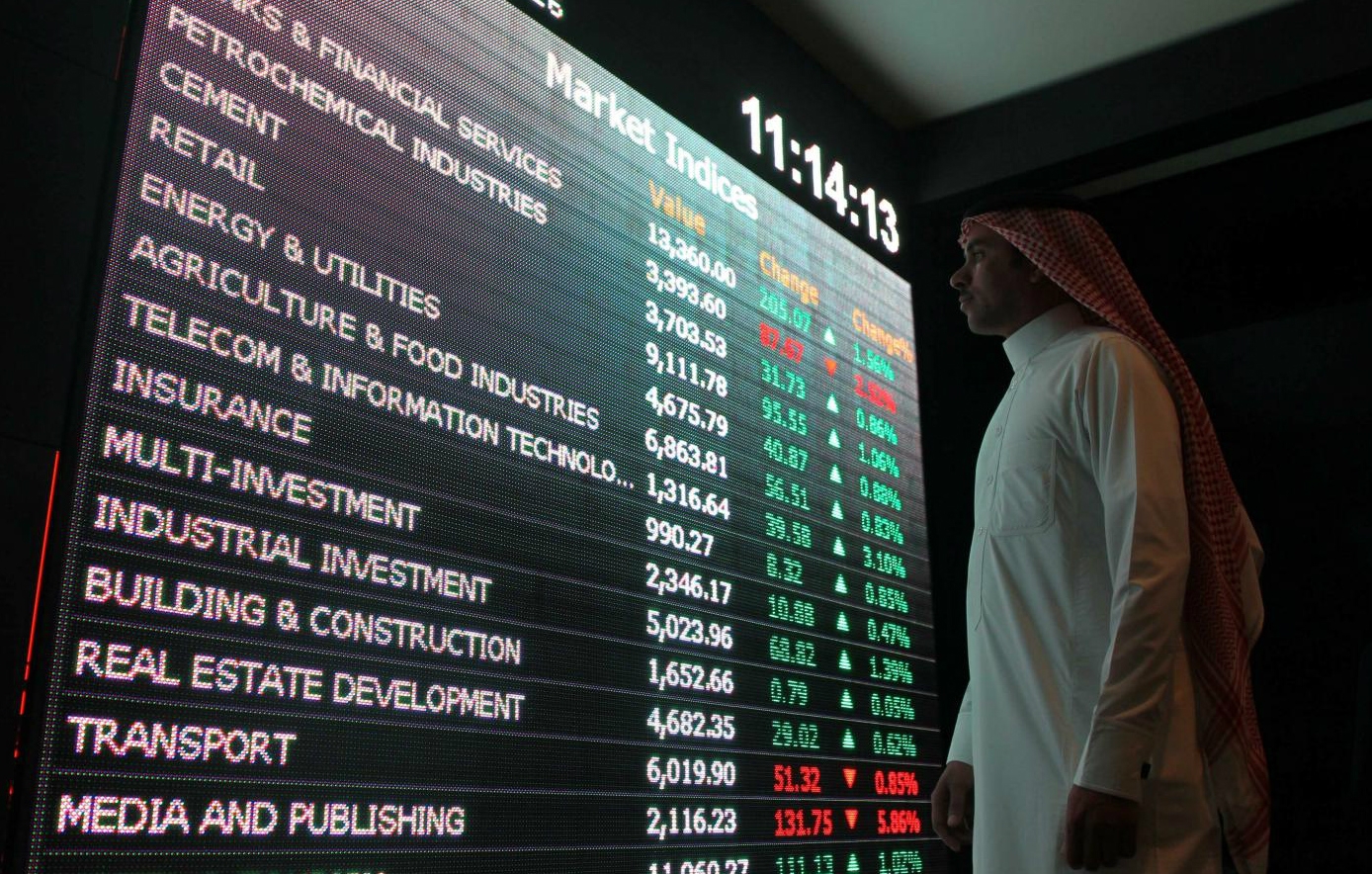
Shares in the energy-dependent Gulf plummeted to multi-year lows Sunday after Opec's failure to agree on a coronavirus action plan prompted fears of an all-out oil price war.
The Opec oil cartel and its allies failed to clinch a deal on production cuts that would have offered support to energy markets hit hard by the impact of the virus, sending prices tumbling to four-year lows on Friday.
The Opec+ meeting was expected to agree to deeper cuts of 1.5 million barrels per day to counter the effects of the novel coronavirus, but Moscow refused to tighten supply.
Fears of a price war were stoked as Saudi Arabia, the world's top exporter, quickly responded by making significant cuts to its oil price.
All the seven bourses in the Gulf were in the red amid a panic sell-off over fears that energy prices, the mainstay of public revenues in the region, could collapse.
New MEE newsletter: Jerusalem Dispatch
Sign up to get the latest insights and analysis on Israel-Palestine, alongside Turkey Unpacked and other MEE newsletters
The Saudi stock market, the largest in the region, dived by 8.3 percent at close on Sunday, the first day of the trading week. It was the lowest closing since November 2017.
Shares in oil giant Saudi Aramco dropped below their initial public offering (IPO) price of 32 riyals ($8.50) for the first time, losing some 9.1 percent to 30.00 riyals.
Saudi arrests
Aramco, the world's biggest company, launched on the Saudi market to much fanfare in December in a record-breaking share offering, but since then its market value has slipped from the IPO value of $1.71 trillion to $1.6 trillion.
The slide on the Saudi market also came amid accounts of high-level arrests among the ruling family that sent shock waves around economic circles in the region.
Middle East Eye reported on Saturday that Saudi authorities had detained at least 20 princes, including King Salman's brother and nephew, in a move signalling Crown Prince Mohammed bin Salman's tightening grip on power.
The Dubai Financial Market shed 7.9 percent to its worst closing in six years, while its sister market in Abu Dhabi fell 5.4 percent and Qatar Stock Exchange dropped 2.9 percent, the lowest since mid-2018.
Dubai's market leader Emaar Properties, the largest property company in the Middle East, fell 9.7 percent to a price of 2.97 dirhams ($0.81), its lowest in eight years.
Kuwait Boursa authorities stopped trading after the Premier Index slumped 10 percent, while the All-Shares index dived 8.3 percent.
The tiny markets of Bahrain and Oman dropped by 3.4 percent and 2.8 percent respectively.
Oil price war
Bloomberg News reported on Saturday that Saudi Arabia had begun an all-out oil war after making the biggest cut in its oil prices in the past 20 years.
The Gulf powerhouse cut its price for April delivery by $4-$6 a barrel to Asia and $7 to the United States, with Aramco selling its Arabian Light at an unprecedented $10.25 a barrel less than Brent to Europe, Bloomberg said.
"Saudi Arabia is responding to Russia's exit from output cuts by launching a price war," Bill Farren-Price of Petroleum Policy Intelligence told AFP.
"They will boost volumes [exports] and seek market share at all costs. Oil prices will collapse on Monday" when global markets open, he predicted.
"The combination of higher oil production and lower demand due to the coronavirus makes that inevitable. It will be a bloodbath."
The new developments are reminiscent of the oil price war that erupted in 2014 and sent oil prices crashing to less than $30 a barrel.
The price fall then battered revenues in the Gulf countries, forcing them to resort to austerity measures and borrowing to plug budget deficits.
Middle East Eye delivers independent and unrivalled coverage and analysis of the Middle East, North Africa and beyond. To learn more about republishing this content and the associated fees, please fill out this form. More about MEE can be found here.


